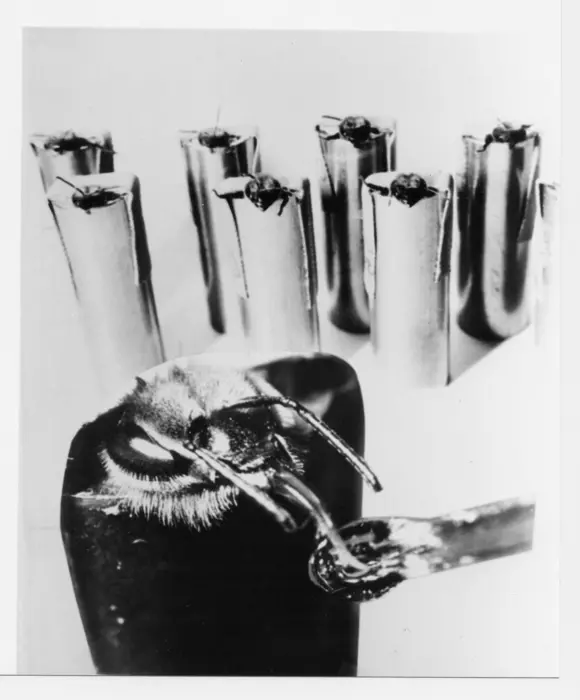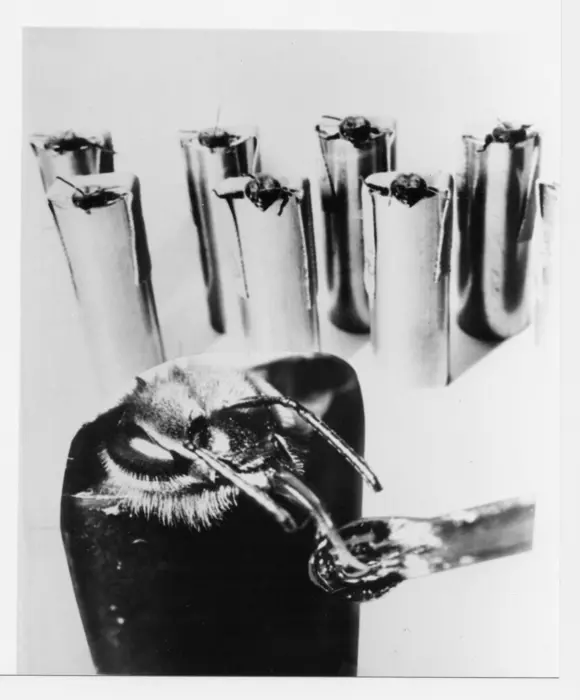Some honeybees learn tasks better than others, and gene expression patterns in their brains may be associated with this difference in ability

Credit: Randolf Menzel, CC-BY 4.0 (https://creativecommons.org/licenses/by/4.0/)
Some honeybees learn tasks better than others, and gene expression patterns in their brains may be associated with this difference in ability
###
Article URL: https://journals.plos.org/plosone/article?id=10.1371/journal.pone.0304563
Article Title: Behavioral and genetic correlates of heterogeneity in learning performance in individual honeybees, Apis mellifera
Author Countries: Germany
Funding: The author(s) received no specific funding for this work.
Journal
PLoS ONE
DOI
10.1371/journal.pone.0304563
Article Title
Behavioral and genetic correlates of heterogeneity in learning performance in individual honeybees, Apis mellifera
Article Publication Date
12-Jun-2024
COI Statement
Authors have declared that no competing interest exists.





